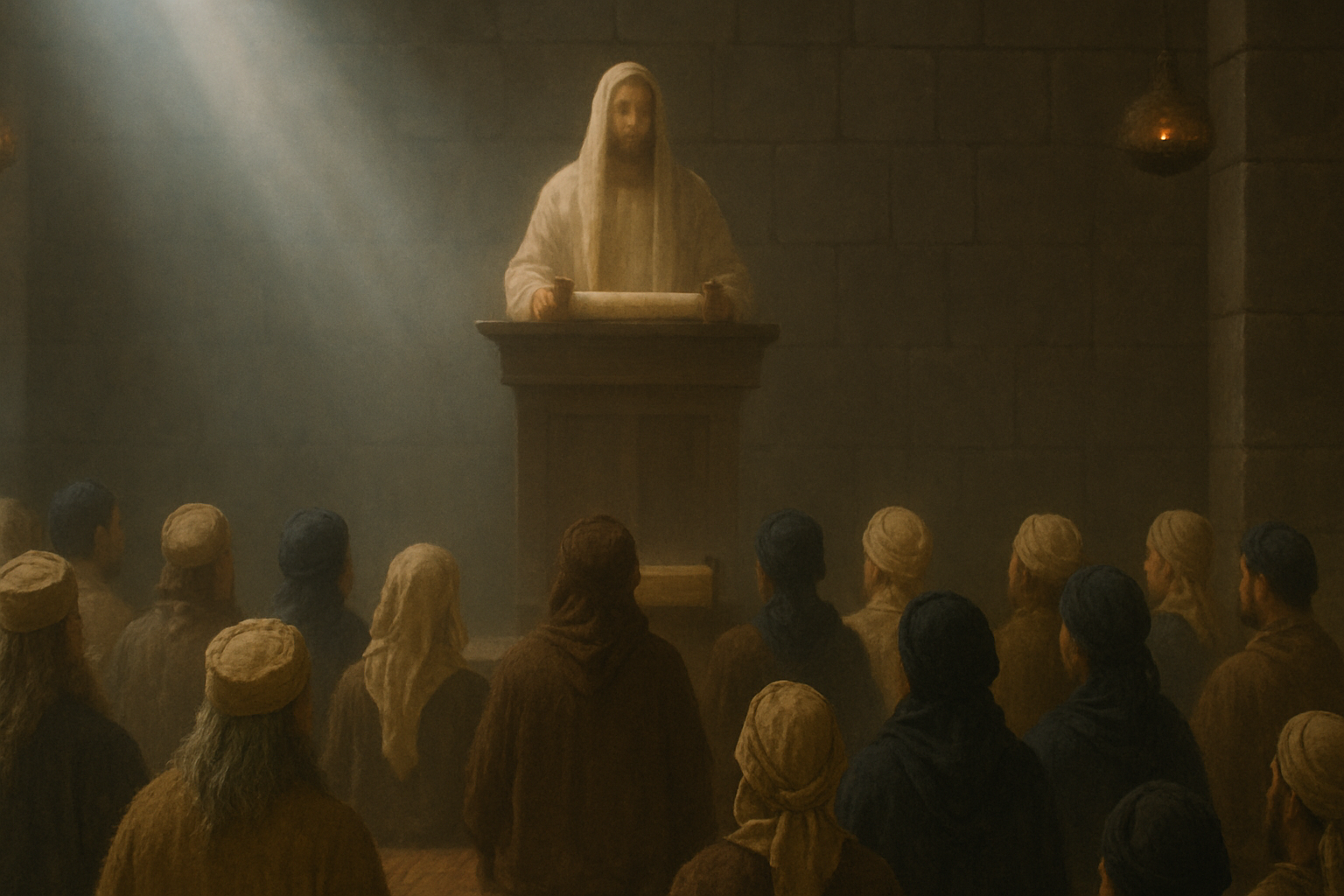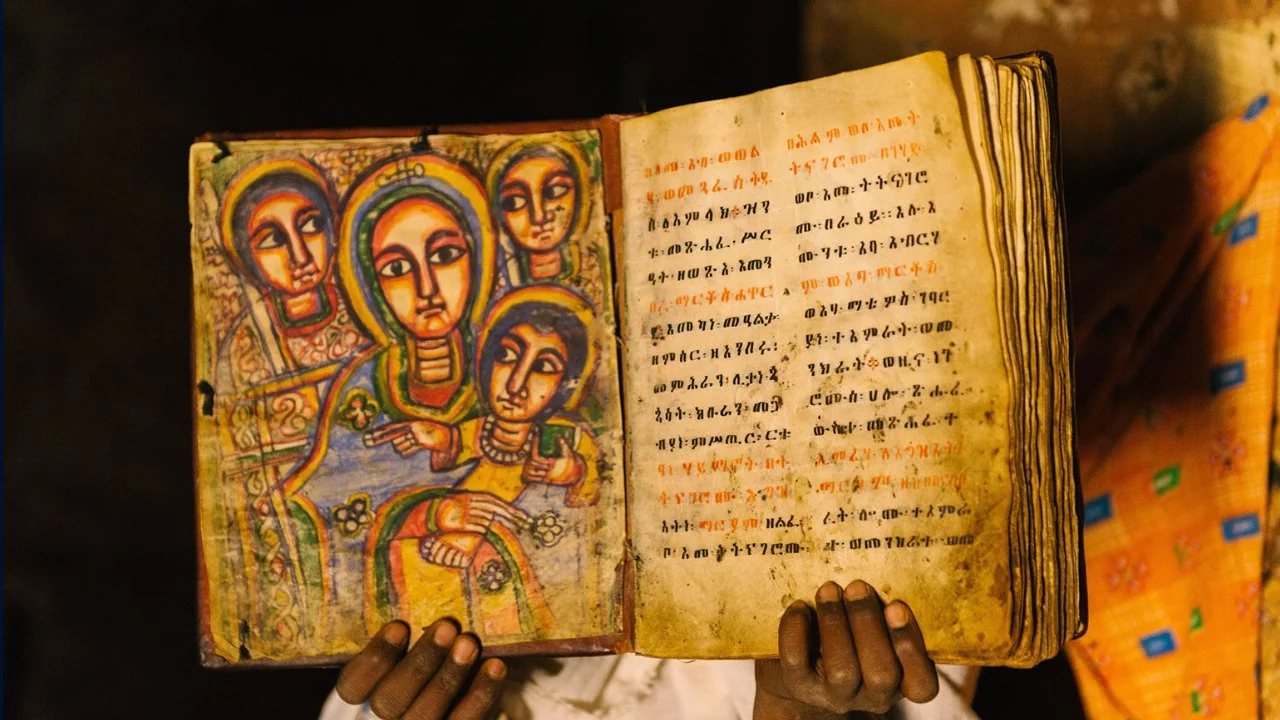Author: David Wilber
God introduced himself to Israel at Mount Sinai as the one who “brought [them] out of the land of Egypt, out of the house of slavery” (Exodus 20:2). He revealed himself as the liberator of slaves. He wanted to be recognized, first and foremost, as a God who wants his people to be free.
This theme is carried into the New Testament: Yeshua said that God’s end-time activity, which includes freeing the oppressed, was inaugurated in his own ministry (Luke 4:16-21). He is the Son who frees the sinner from their slavery (John 8:34-36). The apostle Paul, in combating those who taught a false gospel of salvation by ritual conversion,[1] gave a direct command to “not submit again to a yoke of slavery” (Galatians 5:1). Believers are not to be slaves to men.
The Bible’s theme of freedom from slavery has dramatically impacted the world we live in today. It’s nearly universally acknowledged in the West that humans ought to be free, and that slavery is evil. Indeed, the committee who drafted the United States Declaration of Independence recognized that freedom is something God desires. They declared life, liberty, and the pursuit of happiness to be human rights endowed to us by the Creator. It was on the basis of these founding ideals that Americans eventually abolished slavery and have fought for the freedom and equal rights of everyone.
With that in mind, it’s no secret that the Bible has laws regulating a form of slavery. How do we make sense of these laws in light of the Bible’s overall theme of freedom? If God is all about setting captives free, why didn’t he simply abolish slavery in the Torah? How do we resolve this tension in the biblical text?
Biblical slavery is not what you might think.
First, the Torah does prohibit the type of slavery we often think of today—that is, it prohibits “what became the African slave trade and all institutions of slavery based on kidnapping.”[2] There are no laws allowing people to enslave men and women against their will to be bought and sold as property. The Torah prescribes the death penalty for anyone who does such a thing (Exodus 21:16).
What the Torah does allow for is a type of indentured servitude. As scholar J. A. Motyer writes, “Hebrew has no vocabulary of slavery, only of servanthood.”[3] Men and women, usually to pay off debts or to get out of extreme poverty, could voluntarily become a slave (servant) for a set time.
The Torah’s slavery regulations were quite radical in the ancient world. Israelite slaves were to be freed in the seventh year unless they chose to stay (Exodus 21:2-6). Even if they hadn’t paid off their debts by the seventh year, the Torah required their release anyway, and that their debts be forgiven (Deuteronomy 15:12). Moreover, if a slave decided to flee for any reason, the Torah protected them and did not permit them to be returned (Deuteronomy 23:15-16). The Torah also afforded slaves protections against abuse (Exodus 21:26-27).
Some critics might point to some inconsistencies in the Torah’s regulations concerning foreign (non-Israelite) slaves (see Leviticus 25:44-46). These regulations seem to refer to foreign slaves as literal property, which can be passed to one’s children as permanent possessions. However, some contextual considerations might help resolve some of these concerns.
First, again, the Torah prohibited people from being bought and sold against their will, so whatever arrangement Leviticus 25:44-46 permitted regarding foreign slaves was voluntary. Second, while non-Israelites were not automatically released in the seventh year, Leviticus 25:47 states that the strangers living within Israel could “become rich.” In other words, a foreign slave could eventually get out of poverty, become self-sustaining, and thus wouldn’t have to be a slave anymore. While foreigners in Israel could serve for life, serving multiple generations if they wanted (just like an Israelite slave could!), the Torah didn’t require that. Third, except for automatic debt cancellation in the seventh year, foreign slaves were afforded the same protections and benefits as Israelite slaves, including protection if they decided to leave at any time.
But what about the fact that the text refers to these foreign slaves as “property” and “possessions”? Scholar Jay Sklar gives us some insight regarding this language:
In English, we regularly use commercial language to describe people when the context is commercial, for example, ‘trading’ a player to another team (as one might ‘trade’ a stock), or ‘transferring’ an employee to another location (as one might ‘transfer’ money). We do not use this language because we view the people involved as less than human; we use it because it accurately describes their circumstances in a given commercial context. To say that servants are property (Lev. 25:45) or inherited (25:46) is not to put them on the level of furniture, any more than to say a sports star is ‘traded’ puts him on the level of a stock.[4]
So, biblical slavery, while certainly not ideal, was nothing like what we often think of today as “slavery.” It was a voluntary, six-year-maximum arrangement. While slaves in Israel were in a lower social class, in contrast to other ancient law codes, the Torah regarded slaves as fully human, requiring punishment for mistreating them. The Torah also granted Israelite slaves freedom every seventh year. Additionally, a slave could flee at any time, which proves that one was a slave voluntarily, as they were always free to leave.
The Torah’s slavery laws uphold human equality, ultimately undermining slavery.
The second way we can make sense of biblical slavery is by recognizing the distinction between what Charles E. B. Cranfield called “those elements of the OT law which set forth the perfect will of God” and “those elements which, taking into account the fact of men’s sinfulness, indicate not God’s perfect, absolute will, but His will in response to the circumstances brought about by human sin.”[5] Some laws are not ideal but given to address the realities of a fallen world. Yeshua taught this principle when he said of the laws permitting divorce, “from the beginning it was not so” (Matthew 19:8). Divorce is not God’s perfect will but a concession to human frailty.
I think Scripture is clear that the laws governing slavery represent not God’s perfect will but his response to the realties of a fallen world. I unpack this more fully in my book, Is God a Misogynist, but to establish this, we need to go back to the beginning—before sin entered God’s good creation. What do we find in the beginning? We see human value and equality. God created humans in his image (Genesis 1:27). This is a unique status that applies to all humans and emphasizes their intrinsic moral worth.
You’ll notice there is no slavery in the beginning—that occurs after sin enters God’s creation. After the fall, God lovingly condescends to deal with humans in their fallen state while pointing them back toward the creation ideal as much as possible. With respect to ancient Israel, God met them where they were and gradually led them toward a better way through the values expressed in the Torah. Instead of prohibiting societal systems like slavery outright, which probably wouldn’t have been effective considering how deeply ingrained such structures were in the ancient world,[6] God permitted them and regulated them based on human value and equality.
To be clear, we must not consider God’s instructions found within the framework of man-made structures like slavery to be an endorsement of the structures themselves. Through his regulations, God sets a trajectory back to the creation ideal. God’s laws governing slavery established barriers against mistreating slaves, thus highlighting their dignity. But more than that, God’s laws actually undermined the institution of slavery itself, pointing toward the ideal of human equality.
For instance, slaves, just like free people, are given Sabbath rest, a weekly memorial of creation and the ideal world God intends for all humans (Exodus 20:10). Slaves are invited to partake in the Passover, a memorial of deliverance from slavery (Exodus 12:44). The Torah repeatedly reminds Israel that they too were once slaves in Egypt, and must, therefore, treat all people—including the stranger residing among them—with dignity and love (Leviticus 19:33-34; Deuteronomy 24:14-18). The Torah refers to slaves as “your brother[s]” (Deuteronomy 15:12). Finally, the Torah commands us to “love your neighbor as yourself” (Leviticus 19:18), emphasizing human equality.
The entire basis of the Torah is the declaration that God freed us from slavery. The Torah upholds slaves as fully human and worthy of dignity, love, and freedom. So, while God did permit a form of slavery, he set a foundation in the Torah that would eventually lead to the abolishment of slavery.
When we get to the New Testament, the Torah’s principles of human equality are embraced wholeheartedly. Paul declares that all followers of the Messiah, whether slave or free, share in the gift of God’s love and grace (Galatians 3:28; Colossians 3:11). The Gospel makes the master-slave relationship irrelevant, as all Messiah’s followers are equal members of God’s covenant family regardless of their social or economic status. It was on the basis of this creation ideal that Paul even goes so far as to boldly request that his friend Philemon reconcile with his runaway slave and receive him back “no longer as a slave…but as a beloved brother” (Philemon 1:15-16).
In conclusion, the Bible teaches that all mankind is made in God’s image and worthy of dignity. God reveals himself as a liberator of slaves. The Torah does not allow for any type of slavery based on kidnapping. The Torah did allow for a heavily regulated form of slavery on a temporary and voluntary basis. The Torah’s regulations of the form of slavery it allowed not only served to protect slaves but also established a trajectory toward the ideal of human equality. Ultimately, we morally reject slavery today because we agree with the values expressed in the Torah.
[1] See Tim Hegg, Why We Keep Torah: Ten Persistent Questions (Tacoma, WA: TorahResource, 2009): “[T]he term 'circumcision' is used as a shorthand way of describing proselytism—that rabbinic ceremony by which a Gentile person would be given the status of being a Jew and therefore qualify to have a place in the world to come [m.Sanhedrin 10.1]. Given this understanding, one is in a far better position to understand why Paul speaks so strongly against circumcision (Gal 5:2-3). He is not arguing against the biblical commandments, as is seen by the fact that he has Timothy circumcised (Acts 16:1f). In Galatians, Paul is using “circumcision” to mean “to become a proselyte,” that is, to accept the idea that “becoming a Jew” would secure a place in the world to come.” (p. 129)
[2] Dennis Prager, The Rational Bible: Exodus (Washington, DC: Regnery Faith, 2018)
[3] J. A. Motyer, The Message of Exodus (Downers Grove, IL: InterVarsity, 2005), p. 239
[4] Jay Sklar, Leviticus (Downers Grove, IL: InterVarsity Press, 2014), pp. 308-309
[5] C.E.B. Cranfield, The Bible and Christian Life (T & T Clark, 1985), pp. 229-230
[6] See Alden Thimpson, Who’s Afraid of the Old Testament God? (Energion Publications, 1989): “Judged by the cultures around ancient Israel, the laws given to Israel show remarkable signs of ‘humanization.’ God took this people, in spite of the many barbaric and cruel customs which they had adopted, and began to draw them to him. He wished to show them a better way. But if human beings are to be treated as real human beings who possess the power of choice, then the ‘better way’ must come gradually. Otherwise, they will exercise their freedom of choice and turn away from that which they do not understand.” (Kindle Locations 429-433)
About David Wilber
David is first and foremost a passionate follower of Yeshua the Messiah. He is also a writer, speaker, and teacher.
David’s heart is to minister to God’s people by helping them rediscover the validity and blessing of God’s Torah and help prepare them to give an answer to anyone who asks about the hope within them (1 Peter 3:15)…












